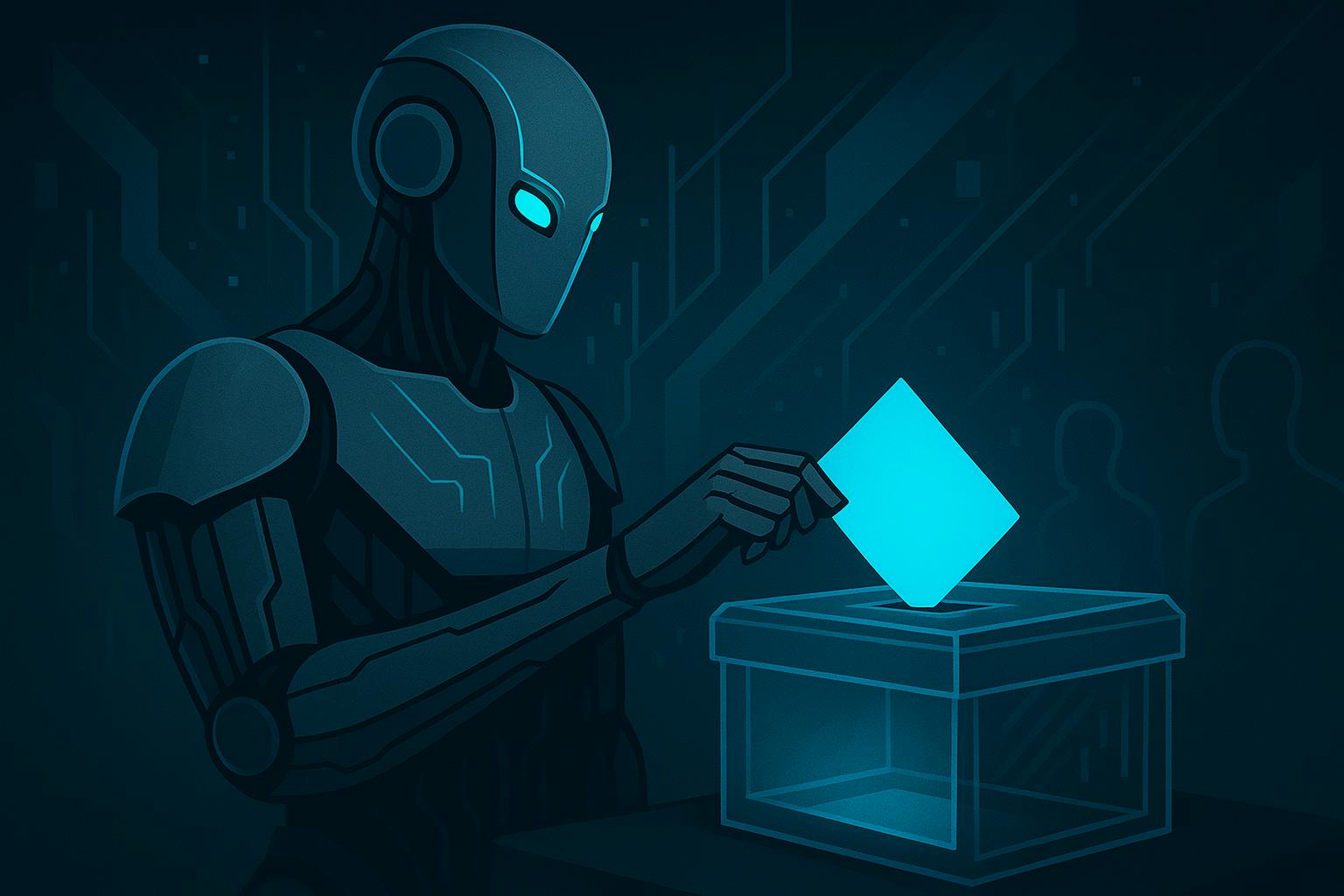Imagine a company where multi-million-dollar decisions are made not by humans, but by autonomous programs. This is not a sci-fi movie scene — it's the reality emerging at the intersection of blockchain and artificial intelligence.
Decentralized Autonomous Organizations (DAOs) are increasingly integrating Al agents to automate governance, strategy, and resource allocation. One of Nouns DAO's cofounders even purchased an NFT avatar (Noun #355, named Roko) to make it the first fully Al-governed DAO member:
In these DAOs, Al agents can: analyze data, summarize forums, generate pros and cons, offer recommendations, execute proposals automatically, manage treasury funds, and even vote based on preset strategies.
Examples include Roko (summary bot in Nouns DAO), GoverNoun (a proposed Al delegate that tracks all discussions and votes accordingly), and Aragon (where people delegate tokens to Al scripts).
Al also improves decision quality by simulating 'what-if' scenarios and performing risk analysis before votes. It enables DAO participants to make informed decisions backed by predictive modeling.
GnosisDAO, for instance, experiments with futarchy — prediction markets that indicate whether a proposal will improve system value. Here, traders bet on the likely outcome, and the market 'votes' with its confidence.
Why is Al-augmented governance effective? Speed, scale, discipline, objectivity, and optimization. Al works 24/7, doesn't miss deadlines, avoids emotional bias, and frees humans for creativity and vision.
Yet there are risks: bugs in smart contracts, adversarial inputs (data poisoning), black-box logic, fake agent identities (Sybil attacks), and ethical/legal issues such as accountability and transparency.
To mitigate this, DAOs must maintain human oversight — emergency overrides, audits, public AI source code, and proof-of-humanity systems for governance participants.
Looking forward, AI-powered DAOs could evolve into fully autonomous digital organizations — venture funds run entirely by algorithms, from due diligence to capital deployment.
But trust will be key. Will communities be ready to let go of control? Only if the code proves reliable, explainable, and aligned with collective values.
AI should augment human judgment, not replace it. The goal is better decision-making — wiser, fairer, more strategic. Risks are real, but solvable — through collaboration among intelligent humans united by the DAO spirit.
The future of governance belongs to those who can work effectively with AI. Perhaps tomorrow, during your DAO's next vote, a confident algorithm will cast its voice — and that may be a good thing.


